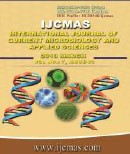


 National Academy of Agricultural Sciences (NAAS)
National Academy of Agricultural Sciences (NAAS)

|
PRINT ISSN : 2319-7692
Online ISSN : 2319-7706 Issues : 12 per year Publisher : Excellent Publishers Email : editorijcmas@gmail.com / submit@ijcmas.com Editor-in-chief: Dr.M.Prakash Index Copernicus ICV 2018: 95.39 NAAS RATING 2020: 5.38 |
Tribal people are working hard in farming but due to unfertile and un-even land, lack of irrigation facilities, traditional methods of agriculture, illiteracy and poverty they are getting low income from farming as compared to other groups of people making it difficult for them to maintain their family need and living standard forcing them other economical occupation like, agriculture labour, construction work and seasonal works etc. The present study was conducted in two districts, namely, Banswara and Dungarpur of southern Rajasthan, having highest per cent of tribals in the state. Banswara and Dungarpur register the highest concentration of 72.3 and 65.14 per cent of tribals respectively. Total respondents included in the study were 150, out of which 75 male and 75 female TSP beneficiaries were them. Proportionate random sampling technique was employed for the selection of respondents. From each village equal number of male and female respondents was sought for the present study. In case of Social empowerment respondents adequately empowered their participation in village administration. But male involvement was poor in addressing social issues and problems, whereas, female were unable to involve in decision making. In case of economic empowerment, male respondents after implementation of TSP programme got improvement in family income but they were unable in repayment of debt in time. Whereas, female were capable to stabilized their income but unable to develop savings habit.
 |
 |
 |
 |
 |